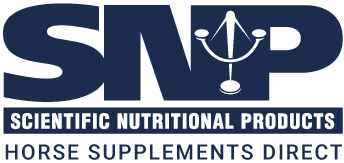Worming is an essential part of horse health care. A high worm burden can interfere with the horse’s blood vessels, sensitive digestive system and can make the affected horse or pony very unwell. In recent years there has been more awareness around drug resistance to equine wormers and with the wetter, warmer weather increasing the parasite level, keeping on top of worms can be a real problem for horse owners to manage. In our latest blog Scientific Nutritional Products takes a look.
The types of worms which affect horses include small and large strongyles, round worms and tape worms and these parasites can affect the horse in different ways. Signs of a high parasite burden include; diarrhoea, weight loss, an enlarged abdomen or in severe cases outbreaks of colic.
Historically horse owners would worm their equines routinely throughout the year but with more awareness around drug resistance a variety of tests to assess worm burden have emerged and are widely accessible through veterinarians for optimum health care.
The most commonly known test is the faecal egg count which is where a faecal sample is taken and assessed by the vet or an independent provider. Horse owners are then advised to worm or not, depending on the worm burden. The ELISA blood test detects whether there are tape worm in the system, which the faecal worm count does not, and should be conducted at least every six months. The alternative to this is the EQUISAL Salvia test which tests for tapeworm via determining tapeworm antibodies.
Management strategies to reduce the risk of worms are also very important.
Rotating your equine’s pasture allows the fields to rest. The concept is based on the idea that in weather conditions such as hot, or in contrast; frosty weather the number of larvae on the pasture will be reduced by the temperature. The removal of droppings regularly makes a signifiant contribution too. When your horse or pony is sharing the paddock with other equines checking that they are also on an appropriate worming management schedule is vital so that spread between equines is controlled.
Maintaining good all-round-health can also be helpful as it ensures the horse or pony’s body is well-equipped to support general health. Including a supplement in the diet such as Horse and Pony Multi Vitamin Supplement which contains premium vitamins and minerals to can optimise health and well being.
For more information on our Horse and Pony Multivitamin or any of the other supplements in our range from Scientific Nutritional Products please visit our website at www.horsesupplementsdirect.co.uk or contact a member of the team on Freephone: 0800 032 7774.



